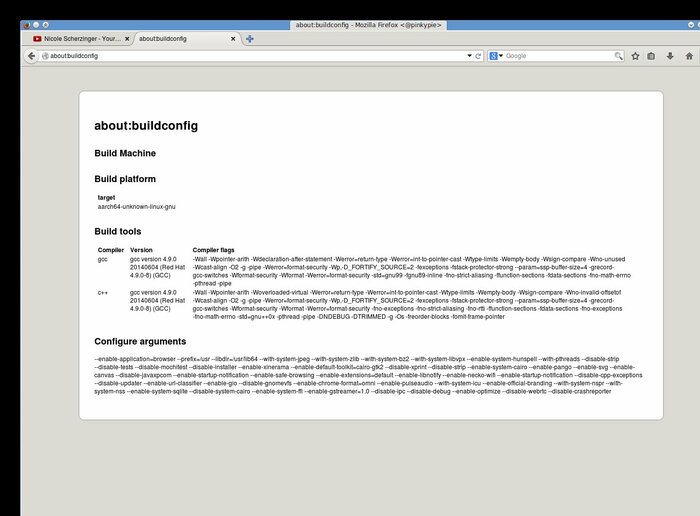When GNU project was announced over 30 years ago it was something great. But time passed and I have a feeling that it is more and more politics instead of coding.
I do builds. For over 10 years now. It was ARM all the time with some bits of AVR32, MIPS, x86. During last two years it is nearly 100% AArch64. And during last months my dislike to GNU project grows.
Why? several reasons.
Commit messages
There is a lot of articles about “how to write good commit messages”. I can tell you where to look for bad ones: gcc, binutils, glibc — base of most of GNU/Linux distributions. All of them can be fetched from GIT repositories but look like deep in CVS era. Want to find what was changed? You will get it in commit message. Why it was changed? Forget.
GNU forks
Do you know what IceCat is? Or GNUzilla? Let me quote official homepage:
GNUzilla is the GNU version of the Mozilla suite, and GNU IceCat is the GNU version of the Firefox browser. Its main advantage is an ethical one: it is entirely free software. While the Firefox source code from the Mozilla project is free software, they distribute and recommend non-free software as plug-ins and addons.
Where is source? Somewhere in GNU cvs probably. I failed to find it. OK, there is a link to something which is probably source tarball but we have XXI century — developers take source control systems got granted.
Of course IceCat fails to build on AArch64. Why? Because it is based on already obsoleted by upstream version 24 of Firefox. Support for 64-bit ARM platform was merged around Firefox 30 and is complete in version 31. Sure, I could dig for patches for IceCat version but no. This time I refuse.
I do not know, but maybe GNU project needs some fresh blood which will make them more developer friendly?

